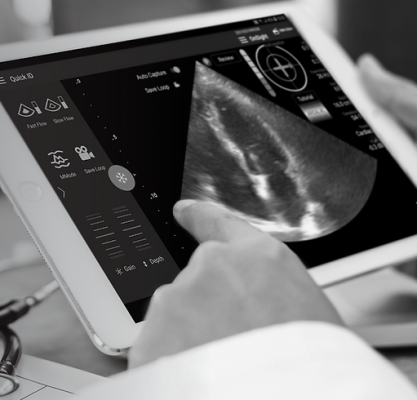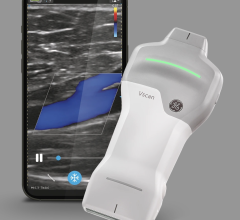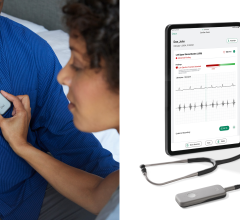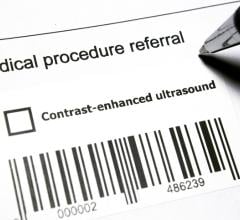
May 26, 2022 — At the 69th Annual Conference of the Israel Heart Society, UltraSight, an Israeli-based digital health pioneer transforming cardiac imaging through the power of artificial intelligence, and Sheba Medical Center Israel revealed new research findings from a blinded pilot study that validates the company’s technology, and confirms that UltraSight’s Artificial Intelligence (AI) guidance can allow any medical professional to successfully capture quality cardiac ultrasound images.
Led by Prof. Robert Klempfner MD, Director of the Cardiac Rehabilitation Institute at the Sheba Medical Center Israel and the Scientific Director of Big Data and AI at the hospital's ARC Innovation Center, the study evaluated the 2D transthoracic echocardiography (TTE) images taken by medical assistants using UltraSight’s AI real-time guidance software. According to the results, UltraSight is effective at instructing novice medical professionals to acquire diagnostic quality exams in cardiac patients. Furthermore, the study concluded that UltraSight AI guidance can allow medical professionals, who do not have prior sonography training, to obtain diagnostic quality cardiac images in 100 percent of patients.
“Cardiac ultrasound is a powerful diagnostic tool enabling timely evaluation of a patient in the emergency department,” said Davidi Vortman, CEO of UltraSight. “However, its application is often limited by the availability of experienced users. This study is a significant step forward in making cardiac ultrasound more widely accessible to patients anywhere.”
For the study, three novice medical assistants, none of which who had any cardiac ultrasound experience, underwent an eight-hour training course before scanning 61 cardiac patients in all 10 standard echocardiography views. These patients were also scanned by a trained sonographer, and each exam was evaluated by three blinded USA board-certified cardiologists who scored the images for diagnostic quality. The medical assistants’ exams successfully permitted the assessment of left ventricular size and function, right ventricular size, and presence of significant pericardial effusion.
“These anatomical assessments are essential to determining heart pathologies,” said Prof. Roberto M Lang MD, Director Noninvasive Cardiac Imaging Laboratory at the University of Chicago. “This is crucial in critical care settings and emergency departments where decisions about cardiac treatment and care need to be made very quickly before conditions deteriorate. The fact that medical assistants were able to take such precise images and achieve near-perfect results with a handheld device is outstanding.”
“UltraSight’s novel technology enables novice users, after minimal training, to perform high quality diagnostic echocardiographic studies,” said Prof. Klempfner. “The technology has the potential to increase user adoption of point of care ultrasound and accelerate patient care in a variety of clinical settings ranging from EMS services, Emergency Medicine to Cardiology and even patient homes.”
UltraSight software pairs with point of care ultrasound devices available today. Using innovative AI algorithms, the software analyzes the ultrasound video stream and provides users with real-time guidance how to maneuver the ultrasound probe and obtain diagnostic quality cardiac ultrasound images.
For more information: www.ultrasight.com


 January 28, 2026
January 28, 2026 









